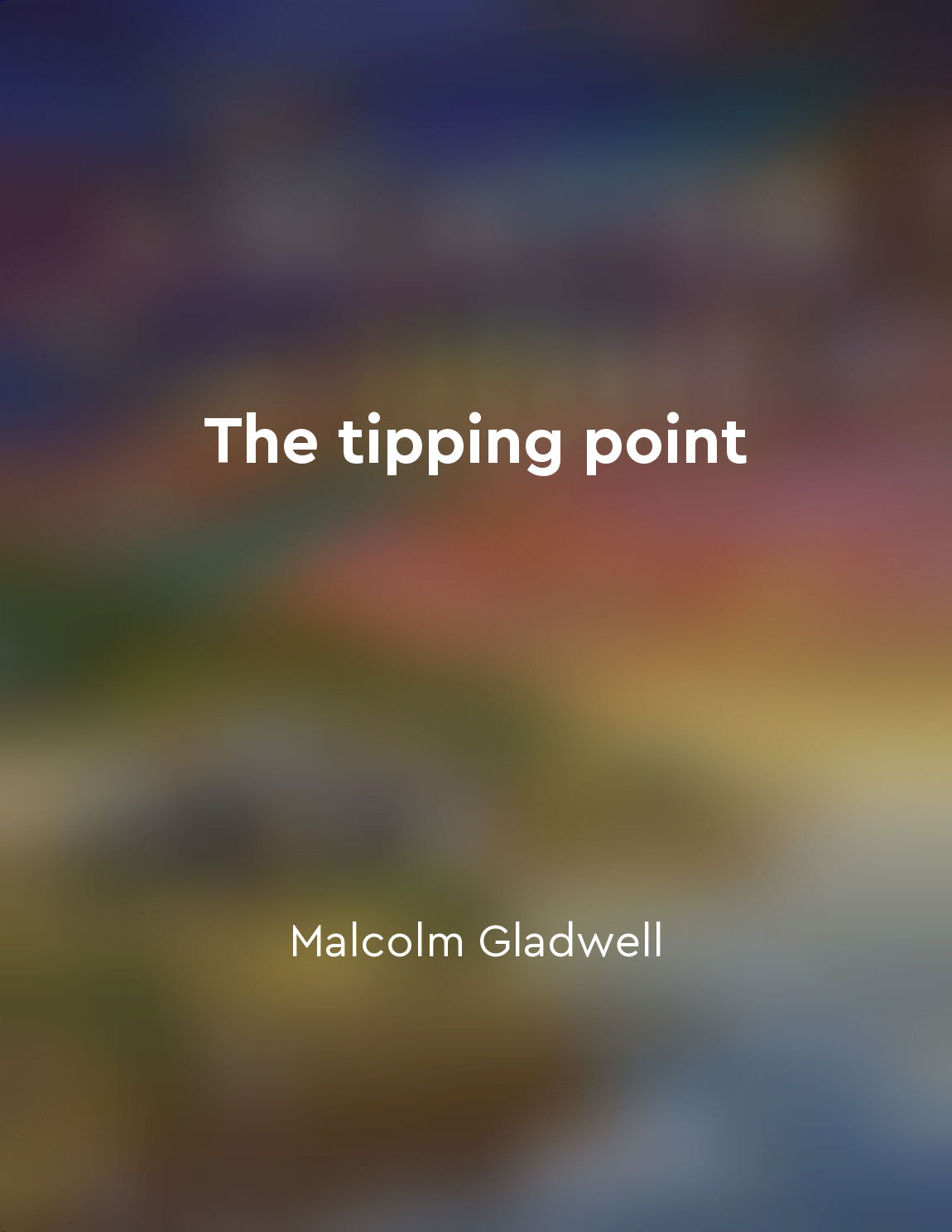The Power of Context can transform the course of events from "summary" of The tipping point by Malcolm Gladwell
The idea that the environment can significantly influence human behavior is a powerful concept. It suggests that small changes in context can have a big impact on the way people act. This notion challenges the traditional view that behavior is solely a product of individual characteristics and suggests that external factors play a crucial role in shaping our actions. The Power of Context can be seen in various examples, such as the Broken Windows theory, which suggests that maintaining order in a community can prevent more serious crimes from occurring. By fixing small problems like broken windows or graffiti, the overall atmosphere of an area can be improved, leading to a decrease in criminal activity. Similarly, the concept of the Power of Context can be applied to marketing strategies. By creating the right environment or context for a product, companies can influence consumer behavior and increase sales. For example, placing a product in an aesthetically pleasing display or associating it with a positive message can enhance its perceived value and desirability. Moreover, the Power of Context can also be seen in social movements and epidemics. By identifying key influencers or connectors within a community, change agents can leverage these individuals to spread ideas or behaviors rapidly. This highlights the importance of understanding the context in which a message is delivered and the role of influential individuals in shaping collective behavior.- The Power of Context underscores the idea that our surroundings and social environment have a significant impact on our thoughts, feelings, and actions. By recognizing the power of context, we can better understand how to create positive change and influence behavior in a meaningful way. Ultimately, the concept challenges us to look beyond individual characteristics and consider the broader context in which events unfold.


